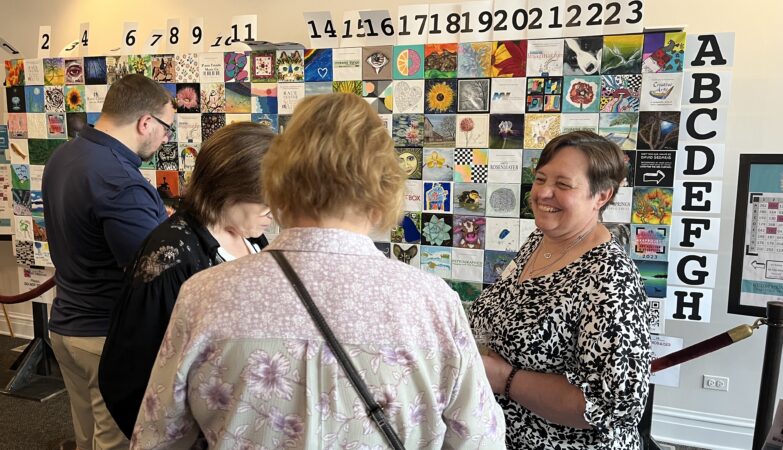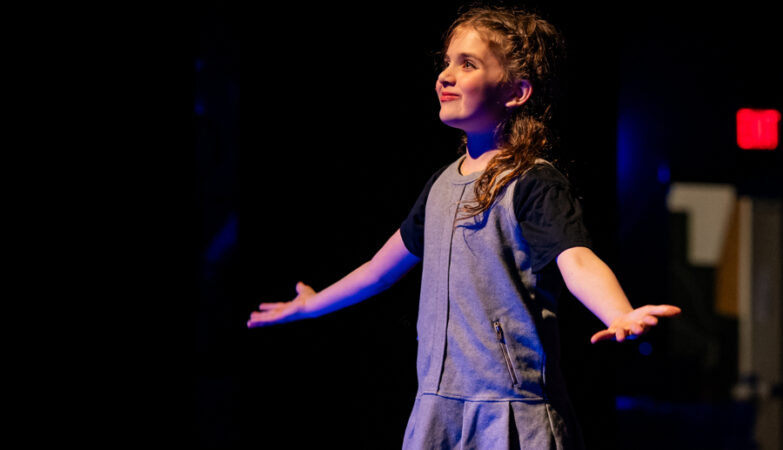By Jess Smith
 Many people view improv like a magic trick— an exciting spectacle that they could never replicate themselves. It’s not true though! Everyone is smarter and funnier than they give themselves credit for. Some of the key tenets of improv are the same guidelines for being a reliable and thoughtful person in life.
Many people view improv like a magic trick— an exciting spectacle that they could never replicate themselves. It’s not true though! Everyone is smarter and funnier than they give themselves credit for. Some of the key tenets of improv are the same guidelines for being a reliable and thoughtful person in life.
So, regardless of your experience with improv comedy, let’s dig past the jargon to reveal 3 little nuggets that improv teaches us about being a better person.
#1 – Yes, And
Known as the number one rule of improv, “yes, and” refers to 1) accepting/agreeing to your circumstances and 2) adding to them. In improv, a performer wants to say “yes” as often as possible in order to propel a story forward. If you and I are in a scene together and you say, “Grandma, Happy birthday; I baked you this cake!” The worst thing I can do is to say “no” and
deny you. “I’m not your grandma! I’m your twin sister! And it’s not our birthday!” Ew. I’ve basically communicated that I didn’t like any of your ideas and mine were better. That’s no way to begin a scene, let alone a conversation, relationship, etc. We always want to be accepting of our circumstances. Maybe I had a fun idea with that twin storyline, but if I’m going to be a scene partner that puts the scene we’re building before my own interests, I’m going to listen to what you’ve provided, agree to it, and add to it.
I should give more information about our relationship, our location, the cake. “Junior, you always make me feel so special; I’m so glad you threw my party at a McDonald’s play place even after your embarrassing incident in the ball pit last year.”
Ahhh. Much better. We’re in agreement of who we are, what’s happening, and I’ve set you up with some information so you can easily “yes, and” me back.
#2 – Speak After Listening (or, avoid “Cookie Monstering”)
It’s important to listen with the goal of understanding. From there, even though you might have a plethora of ideas that you can’t wait to unload, only some of them will work for the situation at hand. What solution is really warranted? What original thought is being summoned for this exact moment? We have to be discerning in what we share because if we spew all of our ideas at once, we’ve muddied the delivery of our best idea. Similarly, we’re not appropriately responding to an issue if we give solutions to problems that don’t exist and don’t acknowledge the ones that do.
The alternative is called “Cookie Monstering” which refers to what happens when improvisers get comfortable onstage and have too many ideas at once. They’re thrilled to have gotten the “yes, and” down and now want to show off how many fun, thoughtful ideas they have to drive a
scene forward. However, what typically happens is the performer doesn’t know when or how to include this information so they include it all at once, while other performers are also trying frantically to drive the scene forward. What results is loud, unlistening chaos. It’s like how Cookie Monster eats all of the cookies and draws attention, these performers are also just creating a cyclone of attention-grabbing bedlam. Nothing of value can be built from that starting point.
Things can only move forward if we’re listening and understanding.
#3 – Mistakes are Gifts!
There is no such thing as a mistake in improv. This idea completely reframes how we deal with missteps. In an improv scene, I truly get giddy whenever I misspeak or misremember a scene element. It’s an opportunity for my scene partner to lovingly poke fun at and justify the error. It’s not wrong, it’s an opportunity. Those moments onstage are magical. For instance, if a scene partner calls me by the wrong name- both names are now correct. I now have a ridiculously complicated name which has just created another fun dimension to the scene. This impulse teaches us that our mistakes are not the embarrassing, insurmountable defeats we’ve been led to believe that they are. They are opportunities that allow us to better connect and support one another.
Start trying out these improv axioms in your daily life. Once you make a habit of “yes, and”ing others, listening with the purpose of understanding and giving yourself grace and space to make mistakes, you’ll find that improv has reframed your brain. Happy improvising!










